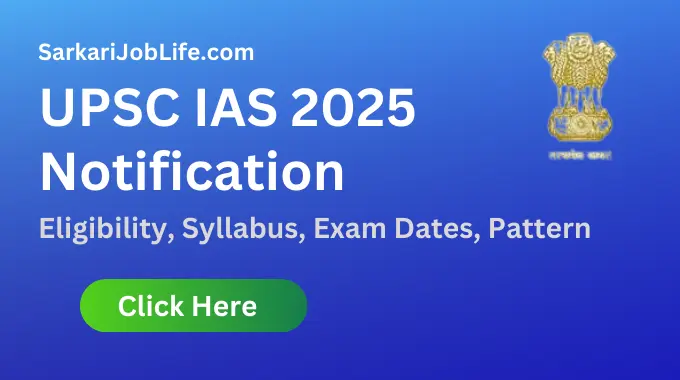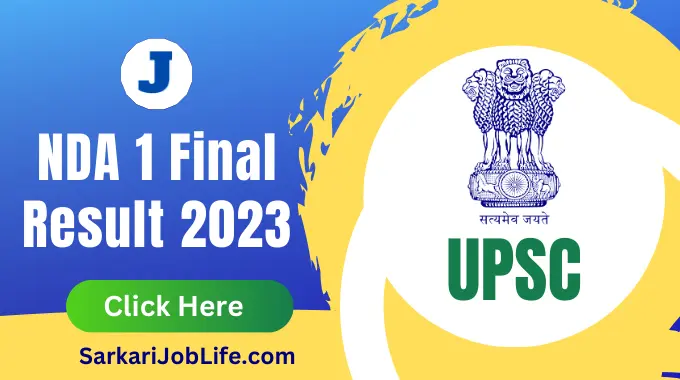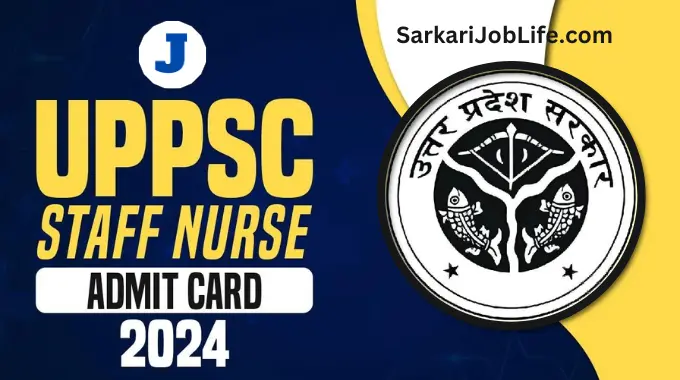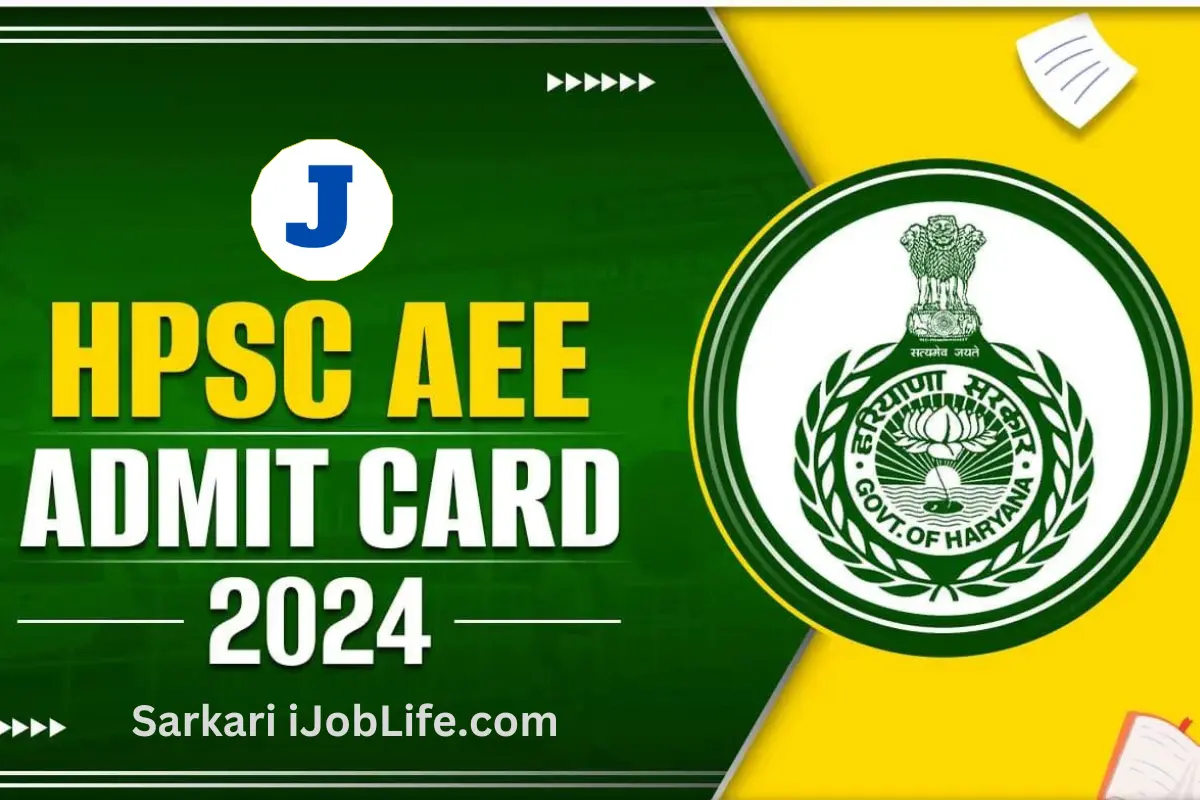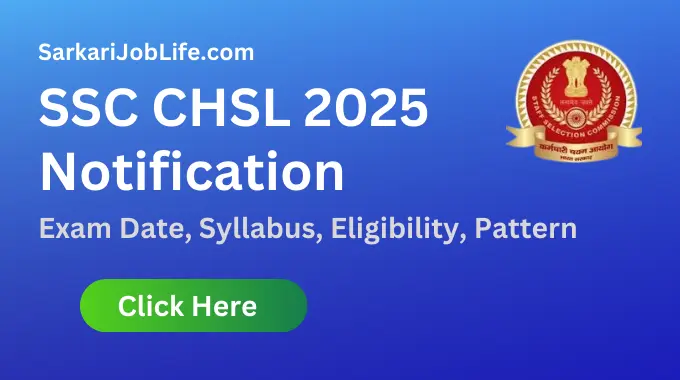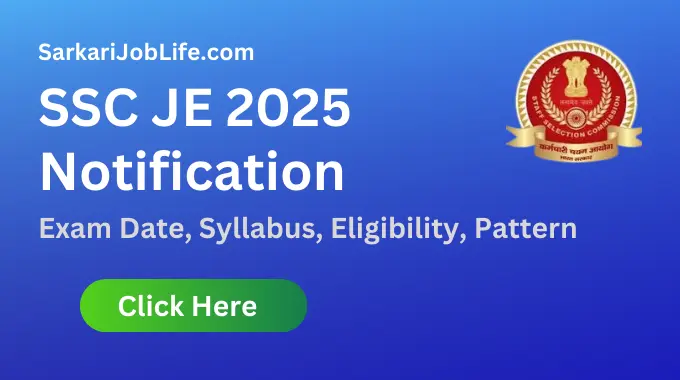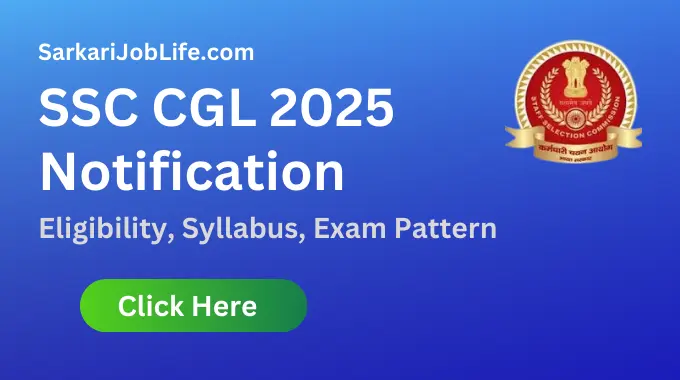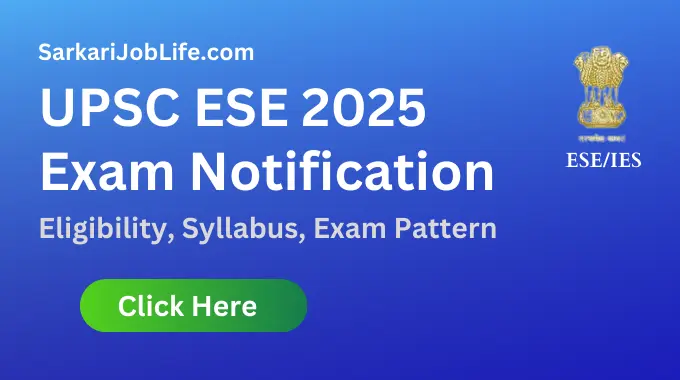UPSC IAS 2025 exams are among the most prestigious and competitive exams in India. The UPSC IAS 2025 Exam is conducted by the Union Public Service Commission (UPSC) for the recruition of candidates for various civil services positions in the country. If you are planning to appear for the UPSC IAS 2025 exam, you need to know about the exam pattern, syllabus, and important dates.
Join WhatsApp
Join NowJoin Telegram
Join NowUPSC IAS 2025 Highlights
| Particulars | Details |
| Exam | Indian Administrative Services (IAS) |
| Conducted By | Union Public Service Commission (UPSC) |
| Official website | upsc.gov.in / upsconline.nic.in |
| UPSC IAS 2025 vacancy | TBA (to be announced) |
| LEVEL | National |
| Stages | 1. Preliminary exam 2. Main exam 3. Personality Test |
| Mode of Exam | Offline |
| Number of Papers | 1. Preliminary Paper – Two 2. Mains Paper – Nine |
| Time Duration | 1. Preliminary – 2 hours each 2. Mains – 3 hours each |
| Language of examination | Preliminary – English and Hindi |
| Application fee | Rs 100 |
| Exam Centres | TBA |
UPSC IAS 2025 Notification
The UPSC IAS 2025 Exam Notification is generally released in February or March and conducted in June. The notification contains all the essential details of the exam, including eligibility criteria, important dates, exam pattern, syllabus, and application process.
Article 320 of the Indian Constitution requires the UPSC to fulfil its duties as a Constitutional Body. The UPSC administers many exams under Indian government regulations. These examinations are just, fair, and impartial and select skilled candidates for Indian government Group A and Group B services. Thus the UPSC IAS 2025 notification is to be announced.
UPSC IAS 2025 Eligibility criteria
As for UPSC IAS 2025, there are specific eligibility criteria established to determine candidates’ qualifications for the examination. These are outlined below:
- Age:
- The minimum age is 21 years on August 1, 2025,
- The maximum age is 32 on August 1, 2025.
- Age relaxation:
- Ex-servicemen: Up to 5 years.
- Defense Service personnel disabled in action: Up to 3 years.
- Scheduled Castes (SC) or Scheduled Tribes (ST): Up to 5 years.
- Other Backward Classes (OBC): Up to 3 years.Persons with Benchmark Disabilities (PwBD): Up to 10 years.
- Required Education:
- An approved Indian university or school degree.
- College seniors are qualified, but they must produce documentation of passing the exam before the Main Exam.
- Nationality
- Indian citizen.
- Subjects from Nepal or Bhutan.
- Tibetan refugees who planned to live in India indefinitely before January 1, 1962.
- Indians who migrated from Pakistan, Burma, Sri Lanka, Kenya, Uganda, Tanzania, Zambia, Malawi, Zaire, or Ethiopia to reside permanently and have been recognized as citizens by the Indian government.
UPSC IAS 2025 Number of attempts
| Category | Attempt Times |
| General | 6 |
| OBC | 9 |
| SC/ST | Unlimited attempts ( Till Age Limit Reach) |
UPSC IAS 2025 Exam Pattern
- Preliminary Examination
- General Studies Paper I
- General Studies Paper II (CSAT)
- Main Examination
- Essay Paper
- General Studies I to IV
- Optional Subject Paper I & II
- Qualifying Papers (English & Indian Language)
- Personality Test (Interview)
UPSC IAS 2025 Syllabus
I. Detailed Syllabus Breakdown
A. Preliminary Examination Syllabus
1. General Studies Paper I
– Indian Polity and Governance
– Indian Economy
– History of India and Indian National Movement
– Geography of India and the World
– Current events of national and international importance
2. General Studies Paper II (CSAT)
– Comprehension
– Interpersonal skills including communication skills
– Logical reasoning and analytical ability
– Decision-making and problem-solving
– Basic numeracy
B. Main Examination Syllabus
1. Essay Paper
– Topics related to current events and issues of national and international importance
2. General Studies I to IV
– Indian Heritage and Culture
– Governance, Polity, Social Justice, Constitution and International Relations
– Technology, Bio-diversity, Economic Development, Environment, Security, and Disaster Management
– Ethics, Integrity, and Aptitude
3. Optional Subject Paper I & II
– Detailed syllabus as per chosen optional subject
4. Qualifying Papers (English & Indian Language)
– Language comprehension
– Communication skills
– Precis writing
5. Personality Test (Interview)
– General awareness
– Critical powers of assimilation
– Intellectual curiosity
– Integrity and moral integrity
UPSC IAS 2025 Selection Process
UPSC IAS 2025 exam may employ the same three-step selection method as in previous years:
- Preliminary written exam: This objective exam has two parts: General Studies and Civil Services Aptitude exam. Each paper is worth 200 points, totaling 400. This is a qualifying exam; therefore, your grades won’t contribute toward the honor list.
- Main Exam: Nine 250-point questions make up this written exam. The total points are 1750. The themes include an essay, general studies papers on Indian politics, economics, history, geography, and more, and a candidate-selected subject.
- Interview or personality test: This level, worth 275 points, assesses public service suitability.
UPSC IAS 2025 Educational Qualifications
The Civil Services Examination (CSE), which includes the UPSC IAS 2025 exam, requires a bachelor’s degree from an accredited institution. That is:
- Indian University Grants Commission (UGC)-approved degrees are required. Validity doesn’t need the same field as the degree.
- College seniors and those seeking results may also apply for the UPSC CSE 2025 preliminary exam.
- Before taking the main test, pupils must pass the qualifying exam.
UPSC IAS 2025 Exam Stages and Structure
The UPSC Civil Services Exam (IAS Exam) comprises three selection steps:
| Stage 1. Preliminary Examination | At this level, General Studies Paper I (GS Paper I) and General Studies Paper II are objective-type. This step resembles screening. For the Prelims, each question is worth 200 points, totaling 400. You lose one-third of a point for every wrong response at this level. |
| Stage 2: Mains Examination | The Prelims lead to the more detailed Mains for those who perform well. Nine papers are due in five to seven days. The person must pass an essay, four General Studies (GS) Papers (I–IV), two optional topics, and two Hindi or English papers. The qualifying language papers need just 25% to pass. The additional papers, worth 1750 points (750 for GS and 300 for each optional topic), impact the final placement. There are no negative marks yet. |
| Stage 3. Interview/personality test | The last phase is the attitude test/interview, which assesses mental health, government preparedness, and attitude. UPSC members run this 275-point portion. Questions are distinct from others since no written exams or poor grades exist. |
Join WhatsApp
Join NowJoin Telegram
Join NowUPSC IAS 2025 Salary Structure, Pay Scale, Allowances, and Perks
Exploring the salary structure for UPSC IAS candidates is crucial. Let’s examine the pay scale, allowances, and benefits offered.
- Pay Scale for UPSC IAS Officers
- Entry Level Pay Scale
- Starting with Basic Pay for Probationary Officers: INR 56,100 per month (Level 10)
- Understanding Pay Levels and Grade Pay
- Details on Training and Probation Periods
- Pay Matrix Level Increments
- Insights into Yearly Increments, Promotions, and Advancements to Senior Administrative Grades
- Allowances and Perks for UPSC IAS Officers
- Dearness Allowance (DA)
- Calculating and Revising DA: About 17% of Basic Pay
- House Rent Allowance (HRA)
- Classifications (X, Y, Z) and Corresponding HRA Rates: Ranging from 8% to 24%
- Travel Allowance (TA)
- Details on Conveyance and Tour Allowance, Tailored to Travel Needs
- Medical Allowance and Insurance
- Comprehensive Health and Medical Benefits
- Other Special Allowances
- Insights on Study Allowances, Children’s Education Allowances (up to INR 2,250 per child per month), and Special Duty Allowances based on assignments
- Additional Benefits and Facilities
- Official Residence
- Overview of Government-provided Accommodations: Type VI to Type I residences
- Official Vehicle and Driver
- Car Facilities for Official Use, Varied by Rank
- Domestic Help and Servants
- Support for Household Tasks, Location-specific
- Security and Protocol
- Personal Security Arrangements Tailored to Threat Assessments
- Pension and Retirement Benefits
- Gratuity, Pension, and Provident Fund Details: Ensuring Generous Retirement Benefits
UPSC IAS 2025 Essential resources and preparation tips
Dedication and organization are needed to pass the UPSC Civil Services Exam (CSE). For UPSC applicants, here are some essential resources and study tips:
- Essential sources:
- UPSC Course Outline and Previous Years’ Questions paper: Check the latest material and past question papers to see how the exam is set up and how much weight each topic has. Both are on UPSC’s website.
- NCERT Textbooks (Class 6-12): These government publications aid UPSC training. Clear responses and accurate information are their specialty.
- Standard Reference Books: Stars or training schools may recommend subject-specific reference books for NCERT. Choose trustworthy sites with plenty of news and current information.
- Current affairs platform: Read a trusted daily newspaper like The Hindu or The Indian Express, a monthly magazine like Yojana or Kurukshetra, or online.
- Mock Tests and Answer Writing Practice: Regular practice exams help you assess your readiness, identify areas for improvement, and maximize exam time. Enroll in an online test course or reputable school. Write concise, unambiguous responses daily.
- Preparation tips
- Plan and follow a study plan: Create an achievable study plan. Decide how essential each topic is to you and your strengths and weaknesses. Follow your strategy and review it sometimes to recall what you’ve learned.
- Focus on understanding concepts, not just memorizing: Learn each subject’s fundamental concepts instead of facts. Look at real-life scenarios and provide effective replies to apply your knowledge.
- Develop critical thinking and analytical skills: Read more than books to learn about many subjects. Consider diverse perspectives, use facts, and improve your communication.
- Join an online study group: Discuss your UPSC training with other applicants. It may let you discuss questions, exchange views, and learn from one another.
- Stay positive and motivated: The UPSC CSE route is difficult. Keep a positive mindset, focus on the objective, and appreciate minor successes to inspire yourself while preparing.
Also Read- ESE 2025 Exam Notification Eligibility, Syllabus, Exam Pattern
Also Read- SSC CGL 2025 Notification, Syllabus, Exam Date, Admit Card
Conclusion
The UPSC Civil Services Examination (UPSC IAS Exam) is a means to attain high-level government employment in India. Start preparing for the 2025 exam today. This tutorial covers who is eligible, how the three-step selection process works, what resources you need, and how to prepare. Following these techniques and remaining focused will help you pass the UPSC IAS 2025 exam.

